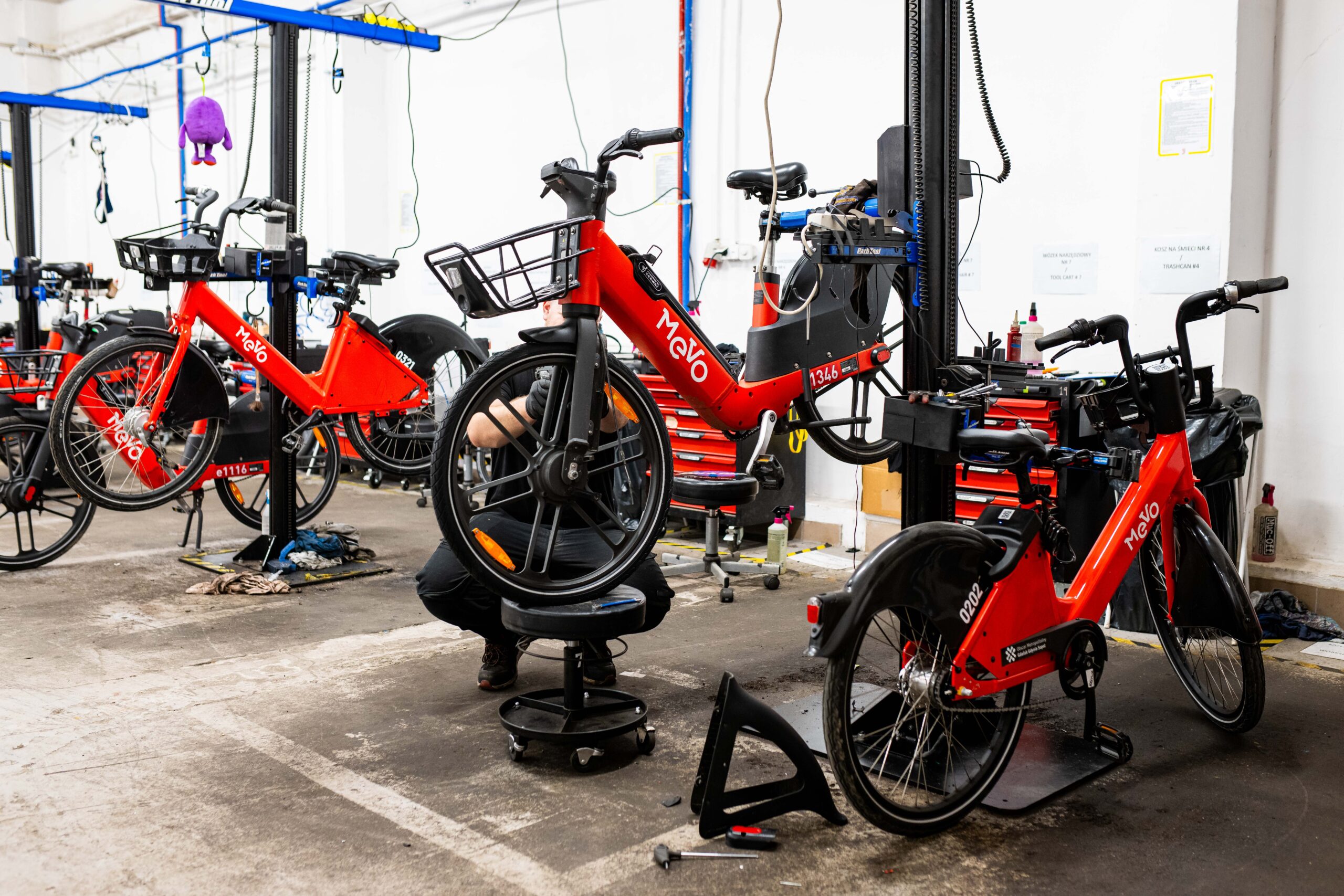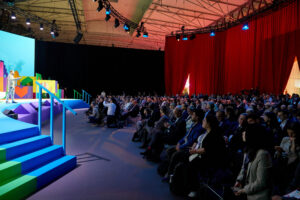Full study in English, French, Spanish, German
Infographics in English, French, Spanish, German
Press release in other languages FR / ES / DK / DE / PT / PL / SE / CZ.
A new study commissioned by EIT Urban Mobility and Cycling Industries Europe (CIE), and conducted by EY, has for the first time quantified the economic and social return on investment of bike-sharing schemes in Europe. The analysis finds that bike-sharing generates €305 million in annual benefits, confirming its role as a key element in sustainable urban mobility.
Bike-sharing is now present in over 150 European cities (EU-27, UK, Switzerland and Norway), from large metropolitan systems like Paris with 42,200 bikes to Brussels with more than 11,000 and smaller towns operating just a few dozen bicycles. London is Europe’s leading city for dockless bike ridership, with 28 million trips recorded in 2024. Together, these networks make up a fleet of 438,000 shared bikes, providing millions of trips each year and connecting people to work, education, and public transport.
The study shows that shared bikes contribute to significant environmental, health, and economic benefits. Each year, bike-sharing saves 46,000 tons of CO₂ emissions and 200 tons of harmful air pollutants. By replacing car trips with active mobility, it helps to prevent 1,000 chronic diseases, resulting in €40 million in healthcare savings. Congestion is eased, with 760,000 hours of productivity saved—valued at €30 million—while 6,000 full-time equivalent jobs are supported across Europe. For users, bike-sharing offers a cost-effective mode of transport, reducing mobility expenses by up to 90% compared with cars.
For cities, bike-sharing is also a strong investment case. For every euro spent today, there is a 10% annual return, generating €1.10 in positive externalities. By 2030, benefits could rise to €1 billion annually if investment and expansion continue. This would include 224,000 tons of CO₂ emissions avoided, more than 4,200 chronic diseases prevented, and nearly 13,000 jobs supported. Under these conditions, each euro invested could deliver a 75% annual return on public spending.
The study highlights four factors that could drive this growth: rising demand due to urbanisation and awareness; greater supply through regulatory support and wider coverage; fleet electrification in response to strong user interest; and territorial expansion to close existing service gaps. These opportunities depend on supportive conditions, including consistent policy and funding, more flexible and reliable systems built on data-driven planning, and stronger integration with public transport and cycling infrastructure.
Nick Brown, CEO of Velogik UK and Project Lead for the study, said: “For the first time, we can put a financial value on the benefits of bike sharing — and the results are transformational. This isn’t just about cycling; it’s about proving that investing in active mobility generates measurable economic returns for cities and citizens alike. This study marks a ground-breaking moment for our industry and lays the foundation for wider recognition of cycling as one of the smartest investments a city can make.”
Lauha Fried, Policy Director at Cycling Industries, says: “We hope this study will reshape the way cities think of bike sharing. Bike sharing is no longer only a cost, but an investment that delivers clear returns – from reduced emissions and cleaner air to greater productivity and healthier citizens. Cities like Paris, with more than 75 million rides a month, prove how quickly bike sharing can go mainstream and transform how people move and how cities thrive.”
Bernadette Bergsma, Communications and EU Affairs Director at EIT Urban Mobility, says: “This study shows that bike-sharing is far more than just another transport option – it delivers measurable returns for citizens, cities, and the environment. The evidence is clear: every investment in bike-sharing strengthens public health, makes mobility systems more efficient, and boosts local economies. At EIT Urban Mobility, we are committed to helping cities unlock these benefits and put cycling at the heart of Europe’s future transport mix.”
Yannick Cabrol, Director EY: ‘’We always assume there is a trade-off between people, profit and planet. Bike-sharing demonstrates the exact opposite. For 1 euro invested in bike-sharing, you get at least 1.10 euros back, while giving people back their time, improving the quality of the air they are breathing, creating jobs for those that are far from the job market and reducing carbon footprint. ”
The findings underline that bike-sharing is both a sustainable and strategic tool for cities. With the right policies and investment, it can support healthier citizens, more efficient transport systems, and stronger local economies.


